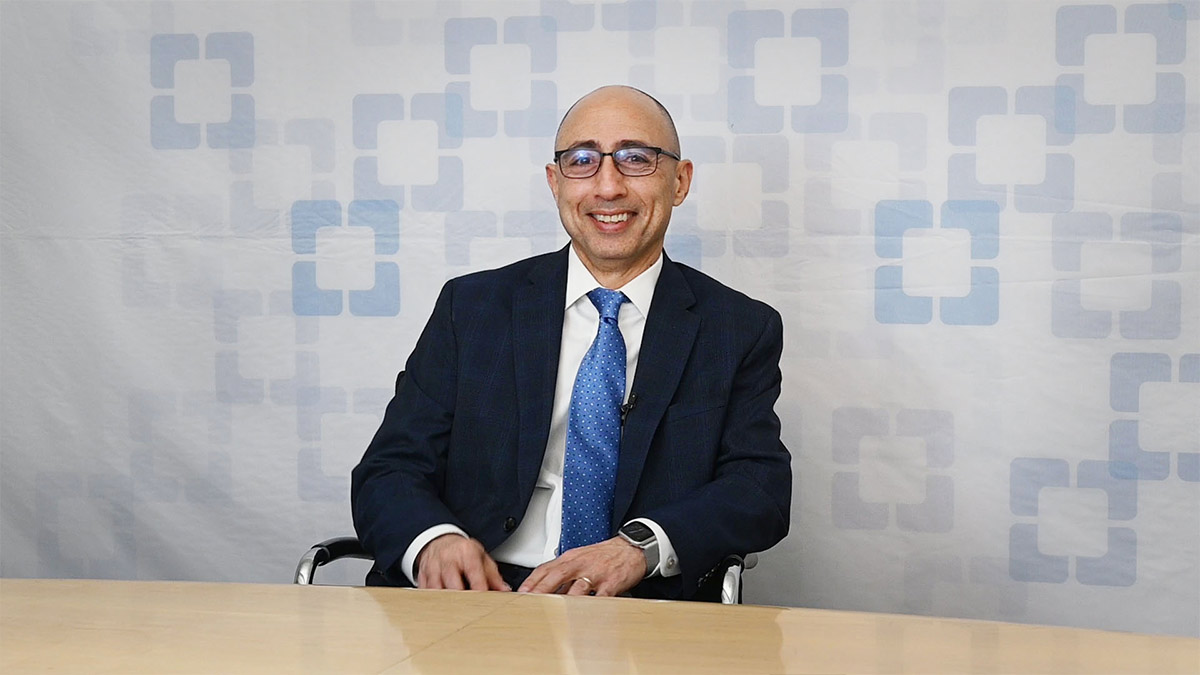Microvessel Disease and Coronary Spasm

Have you been told you have microvascular coronary disease? Do you have chest pain but told you do not have coronary artery disease by cardiac cath? There are new ways to diagnose microvessel disease that help doctors guide treatment. Dr. Khaled Ziada, a specialist in microvascular disease and coronary spasm, talks about this condition, risk factors, how it’s diagnosed, and how treatment is planned to address symptoms.
Learn more about the treatment of microvascular disease and coronary spasm.
Subscribe: Apple Podcasts | Buzzsprout | Spotify
Microvessel Disease and Coronary Spasm
Podcast Transcript
Announcer:Welcome to Love Your Heart, brought to you by Cleveland Clinic's Sydell and Arnold Miller Family Heart, Vascular & Thoracic Institute. These podcasts will help you learn more about your heart, thoracic, and vascular systems, ways to stay healthy, and information about diseases and treatment options. Enjoy.
Dr. Khaled Ziada:
I'm Khaled Ziada. I'm one of the intervention cardiologists at the Heart and Vascular Institute, and today I wanted to talk about microvascular coronary disease, which is an area of interest for me, and a relatively new area of interest in research in our field. So we know that most patients who have coronary artery disease, it's caused by plaque buildup and it affects the big arteries. And those are the ones that we treat with stents or we treat with bypass surgery, and this is the more typical scenario. However, over the last several years, we are now realizing more and more that this disease can also affect small branches that we can't even see when we do our angiograms in the cath lab. And of course these are so small that we cannot see, as I said, and we cannot treat with stents or do bypass on those.
Dr. Khaled Ziada:
But we have now developed new techniques and new tools by which we can assess this disease and diagnose it and possibly guide the treatment, which is usually medical in this case. The key is to think about this disease when we see patients. Many patients are told that they don't have coronary disease because their big arteries don't have the typical plaque buildup that doctors are used to seeing. But the reality is that some patients, and this is more common in women, some patients have this disease that affects the small vessels. So they may be told that they don't have coronary disease or their symptoms are not because of heart issues or heart condition, but it might in fact be their heart that's causing their symptoms, and the tests and the tools that we have now allow us to make that diagnosis and guide the treatment in the proper direction. It's a condition that affects, as I said, more women than men, but still can happen in men. It's actually not rare. It is estimated that up to 50% of patients who have chest pain have some degree of microvascular disease.
Dr. Khaled Ziada:
The risk factors for that are the same types of risk factors that we are used to in patients with typical heart disease. Diabetes, high blood pressure, high cholesterol, overweight, lack of exercise. So the types of conditions that cause the big plaque buildup in big arteries can cause microvascular disease as well. The diagnosis, as I said, is not based on the angiograms, but based on measurements that we use during the angiogram procedures, but dedicated measurements specifically to address microvascular disease. And we also have other measurements to consider the possibility of spasm, which is another condition that can cause heart symptoms, but not necessarily easy to see on our standard angiograms.
Dr. Khaled Ziada:
So the direction in our field right now is to pay more attention to patients' symptoms, make sure that we study the microvascular component of the coronary arteries, not just the large artery component, and have specific tools and tests that we do in the cath lab to diagnose this condition and direct the patient therapy accordingly. There is evidence that by doing these tests and by directing the therapy according to the result of these tests, we can improve patients' symptoms and we can improve quality of life and we don't have to accept having chest pain and not being able to address it in the proper way.
Announcer:
Thank you for listening. We hope you enjoyed the podcast. We welcome your comments and feedback. Please contact us at heart@ccf.org. Like what you heard? Subscribe wherever you get your podcasts or listen at clevelandclinic.org/loveyourheartpodcast.

Love Your Heart
A Cleveland Clinic podcast to help you learn more about heart and vascular disease and conditions affecting your chest. We explore prevention, diagnostic tests, medical and surgical treatments, new innovations and more.


